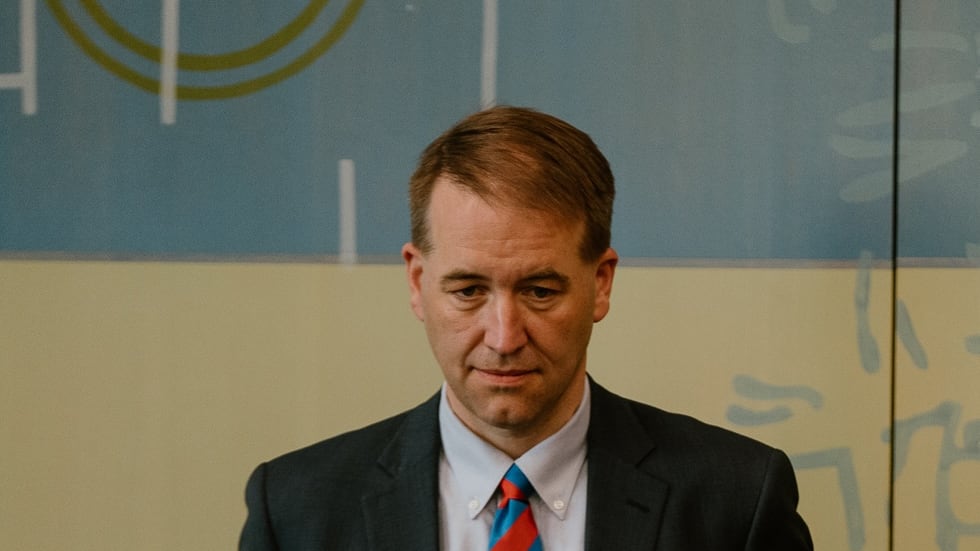This story was produced by the Oregon Journalism Project, a nonprofit newsroom covering the state.
Secretary of State Tobias Read released results of a blistering audit Nov. 20 of the Oregon Bureau of Labor & Industries, the agency that serves as the state’s workplace watchdog.
“BOLI is an enforcement agency with an important role to protect Oregon’s workers,” state auditors wrote. “To be effective in this role, the agency must be efficient and timely with its services. Yet years of poor management and lack of staff left the agency struggling to keep up with demand.”
The consequence: Thousands of Oregon workers’ complaints have languished at the intake level without being moved toward investigation or remedy.
BOLI, led since January 2023 by Labor Commissioner Christina Stephenson, an independently elected official, routinely handles complaints about issues such as wage theft, workplace harassment, and civil rights violations. It also determines whether construction projects that include some element of public funding must pay workers prevailing, i.e., union-scale, wages.
But, according to the audit, it hasn’t handled any of those responsibilities well.
“Significant backlogs exist in all the agency’s major programs. As a result, Oregon’s workers may wait years for a resolution,” the audit found. “This undermines BOLI’s ability to protect workers and can damage public trust.”
Auditors found BOLI had a backlog of more than 4,500 wage and hour claims and complaints and 3,277 civil rights complaints stalled at the intake level.
Of the wage and hour complaints, the audit noted, “76 were waiting for over a year and a half. The longest wait period on the pending investigator list was 1,046 days.”
Wage and hour and civil rights complaints are the two areas where the agency most frequently interacts with workers, but other BOLI departments also have significant problems. In the apprenticeship area, auditors found 290 instances in which critical federal compliance materials remained incomplete when auditors did their review. In the area of administrative prosecutions, where BOLI is supposed to crack down on bad actors, 122 case files were unassigned.
Auditors found that the problems are long-standing. “Poor management and lack of adequate resources have played a central role in BOLI’s current challenges,” the audit states. “Prior leadership failed to maintain basic agency operations, leaving BOLI in crisis.” The “prior leadership” that the audit and Stephenson’s response refer to but do not name would include her predecessor, now-U.S. Rep. Val Hoyle (D-Ore.), who served as labor commissioner from 2019 to 2023.
“I welcome this audit as it is something I also wanted, and quite frankly, it’s long overdue,” Hoyle said in a statement.
“The agency and the public would have been better served to have an audit that tracked a longer time period with more data and perspectives, but I’m heartened that the current administration is focused on building on those investments and modernization,” she added.
The agency has been public about its struggles. After consulting with experts at Rutgers University about its case backlog, BOLI instituted several corrective measures to speed up complaint resolution and for 11 months ending Oct. 1, 2025, stopped investigating claims for workers making more than $25.34 an hour, or $52,710 a year.
That work stoppage got the Legislature’s attention. In the 2025 session, lawmakers boosted BOLI’s biennial budget by more than 50% to nearly $82 million for 2025–27. That allowed the agency to fund 46 new staff positions, which will bring the agency’s head count to just over 200.
The audit cautioned that the agency needs a full overhaul. “Money alone will not fix BOLI’s problems,” the audit says. “Many of its challenges stem from years of neglect and mismanagement. The most basic of organizational tools—policies and procedures—were either outdated or nonexistent.”
In her written response to the audit, Labor Commissioner Stephenson agreed with the audit’s findings—effectively, that the agency needs better and more rigorous policies and procedures, all written down—and its recommendations for improvement.
“The recommendations identify areas that we have been working on diligently for nearly three years but have not been able to fully complete because we lack the necessary resources,” Stephenson wrote. “We are gratified that the Secretary of State’s review aligns with our own assessment.”
In a hearing on her budget before the Legislature’s Joint Ways & Means Committee on Transportation and Economic Development during Legislative Days on Nov. 18, Stephenson said the agency had filled 26 new positions and was close to hiring four more staff. And although staff are working to clear the stack of complaints awaiting action at the intake stage, Stephenson cautioned the agency didn’t expect to clear backlogged wage and hour investigations until mid-2029.
Committee co-chair David Gomberg (D-Otis) says he’d like to see faster progress. “These backlogs are clearly a problem, and too many Oregonians are hurting as they wait their turn,” Gomberg tells OJP. “Last session, we provided the resources they said they needed. I’ll be watching closely to ensure they fulfill their obligations to Oregon workers and employers.”

